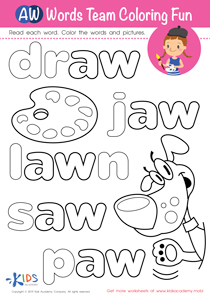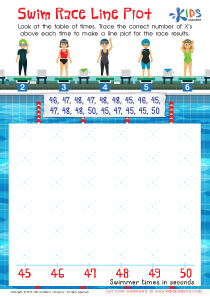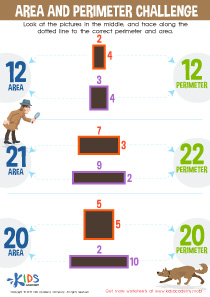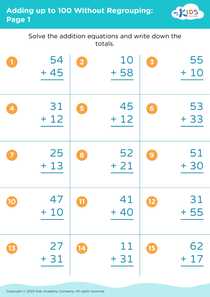Normal Addition Story Problems (#'s 1-5) Quizzes for Ages 3-4
1 results
1 filtered results
Clear all filters1 filtered results
-
From - To
Dive into the world of numbers with our captivating Normal Addition Story Problems (#'s 1-5) designed specifically for children Ages 3-4. This interactive assessment is meticulously crafted to introduce young minds to the fundamentals of addition through engaging story problems. As they explore numbers 1 through 5, children receive instant feedback, reinforcing their understanding and boosting their confidence. Perfect for early learners, our quizzes not only check knowledge but also enhance problem-solving skills. Join us in making learning an adventure, where each question is a step towards mastering addition in the most enjoyable way!
In the exciting and foundational stages of early childhood education, the introduction of mathematical concepts plays a crucial role. Among these, addition stands out as a fundamental skill that sets the groundwork for more complex mathematical operations. Specifically designed for young learners, our Normal Addition Story Problems (#'s 1-5) for Ages 3-4 offer an innovative and interactive approach to mastering the basics of addition. These quizzes not only engage children but also support their cognitive development in a fun and stimulating way.
Understanding addition through story problems is particularly beneficial for children in the 3-4 age group as it translates abstract numbers into real-world scenarios. This method makes learning more relatable and easier to grasp for young minds. Our Normal Addition Story Problems (#'s 1-5) are crafted with this perspective, ensuring that each problem is a miniature story that captivates children's interest while simultaneously teaching them the concept of addition.
One of the key advantages of our interactive quizzes is their ability to hold children's attention. At ages 3-4, children are naturally curious and eager to explore the world around them. Our story problems are designed to tap into this curiosity by presenting addition not just as numbers on a page but as part of engaging stories that they can relate to and visualize. This approach helps in retaining their attention and making the learning process enjoyable rather than a chore.
Moreover, the Normal Addition Story Problems (#'s 1-5) for Ages 3-4 are an excellent way to enhance children's problem-solving skills. Each story problem presents a situation that requires the child to think critically and apply the concept of addition to find a solution. This not just aids in their mathematical learning but also fosters critical thinking and analytical skills from an early age. By tackling these problems, children learn not just to calculate but to reason and deduce, which are invaluable skills in all areas of learning.
Another significant benefit of these quizzes is the reinforcement of language skills. As the problems are presented in a story format, children are exposed to new vocabulary and sentence structures. This incidental learning supports their language development, reading comprehension, and even encourages a love for storytelling. Thus, our quizzes are a multifaceted tool that supports holistic development.
Furthermore, the interactive nature of our Normal Addition Story Problems (#'s 1-5) ensures that children receive immediate feedback on their attempts. This immediacy is crucial for learning at such a young age as it helps them quickly understand their mistakes and learn the correct concepts. The interactive quizzes also allow for repetitive practice in an engaging way, which is essential for mastering any new skill.
In conclusion, our Normal Addition Story Problems (#'s 1-5) for Ages 3-4 are not just about learning addition. They are about making learning a joyful, engaging, and comprehensive experience that touches upon various aspects of a child's development. By incorporating these quizzes into their studies, children can build a strong foundation in mathematics, critical thinking, language, and much more, setting them on the path to success in their future educational endeavors.












